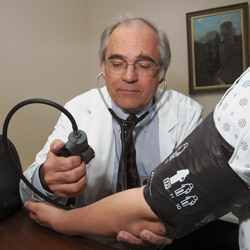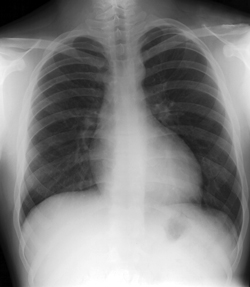CMS dramatically changes CPT consultation billing for 2010
CMS no longer recognizes CPT consultation codes 99241-99255 for consultations. ACP's practice management staff explain how to bill for outpatient and inpatient visit codes.
Many of you have already seen or heard about the proposed CMS decision on billing Medicare consultations for the 2010 calendar year. It is now final: Beginning Jan. 1, 2010, CMS no longer recognizes the Current Procedural Terminology (CPT) consultation codes (99241-99255) describing office/outpatient consultations and inpatient consultations. In their place, the agency requires physicians to use the office/outpatient visit codes and inpatient visit codes.
This CMS decision affects how physicians bill for consultations and the amounts they are paid for these services. Note that this policy change is specific to Medicare. ACP is not currently aware of any corresponding changes from commercial payers. We will continue to investigate any upcoming changes and keep ACP members informed. The CPT codes for consultations will continue to exist, although CMS will not be recognizing them.
Q: If the consultation codes aren't used, how will physicians bill for their consultation services?
A: Physicians will instead use the existing office/outpatient visit codes or the inpatient visit codes. For office or outpatient services, the consultant will bill a new patient visit (CPT 99201-99205) if he or she has not provided a service to the patient in the previous three years, or the consultant will bill an established patient visit (CPT 99211-99215) if he or she has seen the patient in the previous three years. Inpatient consultations will be billed with initial hospital care codes (CPT 99221-99223).
Q: Won't having the consultant bill the same codes as the physician performing the initial visit on admission cause problems?
A: To distinguish the admission services from consult services in the facility setting, the admitting physician of record will bill hospital or skilled nursing facility (SNF) admission work using the initial hospital care CPT codes 99221-99223 or initial SNF care codes 99304-99306, with a new modifier, AI, appended to the visit CPT code.
For an SNF consult, the consultant will bill an initial SNF care code (without the admitting physician modifier).
For subsequent inpatient hospital or SNF care, both the admitting and non-admitting physician(s) should bill Medicare hospital or nursing facility admissions using the initial hospital care CPT codes or initial nursing facility care codes 99304-99306, without the modifier.
Follow-up telehealth inpatient consultations are to be billed with new HCPCS codes G0406 through G0408. The codes will be used for follow-up telehealth consultations provided to a patient in the hospital or SNF setting.
Q: Why did CMS decide to do this?
A: In its rationale for changing its consultation payment policy, CMS stated the following reasons:
- CMS believes the change will avoid the long-standing ambiguity about what constitutes a transfer of care from one physician to another and the resulting implications for payments.
- CMS sees the physician work associated with a consultation and an office visit/initial hospital care service as “clinically similar.” CMS states that the consultations historically received higher payment because of the requirement that the consultant provide a written report back to the requesting physician. That significant discrepancy no longer exists, because the documentation requirements for consultations no longer call for a higher required level of formality. The agency had most recently permitted the report to be made in any form of written communication.
- CMS believes the change will align the physician fee schedule payment policy for consultations with the policy for consultations furnished in the hospital outpatient department. In January 2008, CMS ceased to recognize the office/outpatient consultation codes for payment for hospital outpatient department visits, instructing hospitals to bill the appropriate new or established patient office visit code instead.
Q: Does this mean that the documentation requirements are changing, too?
A: In the final rule, CMS describes its expectation for documentation: “Essentially, the [final rule] would require physicians to cease submitting the consultation codes on their Medicare claims, and to employ the appropriate visit codes in their place. The determination of the appropriate visit code would be made solely on the basis of the existing rules and guidelines for the use of these codes, without any reference to the guidelines that have been employed for the use of the consultation codes.”
ACP is concerned about physicians' ability to be appropriately paid for furnishing consultations. The College is using its formal process of receiving input from its member committees with expertise in payment issues to determine the content and timbre of its response to CMS. This deliberative process also involves receiving input from other internal medicine specialty organizations. The College is committed to providing educational information on coding and billing for consultation services as it considers its next steps with CMS.
Detailed ACP analysis of the 2010 Medicare Physician Fee Schedule final rule, including its projected effects on internal medicine practices, is available to members online.




